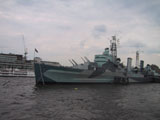
september 2004
 MATTERS OF
ESSENTIAL INTEREST TO THOSE WHO SUPPORT NEUTRALITY
MATTERS OF
ESSENTIAL INTEREST TO THOSE WHO SUPPORT NEUTRALITYFinland to stay neutral, says minister
0Kirk 3.12.2003 - 09:57 CET | By Lisbeth
Finnish foreign minister Erkki Tuomioja
has said he is convinced that Finland will remain
non-aligned - even under a system of closer co-operation
in defence and security within the EU.
"Finland is non-aligned as long as we want to
continue on that path", said Mr Tuomioja at a news
conference organised by the Ministry of Foreign Affairs
in Helsinki on Monday (1 December), according to
Helsingin Sanomat.
The following day he paid a second visit to Paris to hold
talks with French Foreign Minister Dominique de Villepin
on the drafting of the future EU Constitution
For the EU's four non-aligned or neutral
countries Finland, Sweden, Ireland and Austria, the issue
is politically very sensitive and could mean that they
have severe difficulties in getting the Constitution
accepted.
Last weekend, EU foreign ministers
discussed an Italian proposal obliging EU countries to
provide military aid in an emergency - even without a
specific request from the country that has been attacked.
The disputed wording was changed when the non-aligned EU
member states Finland, Sweden, and Ireland put forward an
alternative that fell short of calling for automatic
security guarantees.
Major interests at stake
The Finnish government is also under strong pressure from
within its own ranks. MP Kimmo Kiljunen, a member of the
Convention and a Social Democrat like the foreign
minister, said last week that Italy's proposal would mean
an end to Finland's non-alignment. A third prominent
Social Democrat, Paavo Lipponen, also took a stand on the
defence question on Monday. He dismissed the current
debate about non-alignment as "theological" and
said the most important thing for Finland would be to
take part in European defence co-operation. "We have
major interests at stake", he said according to
Helsingin Sanomat.
Bordering Russia, Finnish neutrality was recognised by
both the West and the East in the early 1960s.
Anachronism?
The European Union's highest military
official is the former Chief of Defence in Finland Gustav
Hägglund, who has been the Chairman of the Union's
Military Committee since 2001.
EU defence
ministers will meet today (5 April) to discuss plans to
set up an EU military planning cell.
EUOBSERVER / BRUSSELS –
The idea, agreed in principle last year, will be on the
agenda as ministers meet ‘informally’ in
Brussels to sketch out some of the details of the plan.
Initially made up of 20 or so planners, the unit will be
tasked with preparing EU peacekeeping, crisis management
and humanitarian operations. Talks will no doubt focus on
the mandate of the group and its key goals. Ministers
will also discuss plans to create a set of EU battle
groups that would be able to conduct operations in a
series of environments.
Foreign Ministers last month
agreed to take up the plan, asking the Irish Presidency
to produce a report by June.
The plan is expected to mirror a
previous plan, tabled by France, Germany and the UK.
The EU’s big three proposed seven ‘battle
groups’ be set up of 1,500 troops, each able to
fight in a different environment.
The groups should be ready for action at 15 days notice
and be able to stay in the field for 30 days.
It is likely that the groups will act as a standing force
for UN operations, but will also be able to take up the
EU’s own missions.
Ministers will also discuss the takeover of NATO’s SFOR mission
in Bosnia, which the EU looks set to take on late this
year.
UK-Spanish relationship on the rocks
The tiny territory
has been a thorn in the side of UK-Spanish relations
since it was seized by the British in 1704.
04.08.2004 - 09:03 CET| By Richard Carter
Gibraltar's
chief minister Peter Caruana accused the Spanish of being
obsessed with the issue, saying, "How we choose to
celebrate our very close links with Britain and our
British sovereignty is a matter for us". As the
people living on the tiny rock of Gibraltar prepare to
celebrate 300 years of British rule, relations between
the UK and Spain are once again being dragged down by the
disputed territory. UK defence secretary Geoff Hoon will
attend the celebrations, which will include a military
parade of 300 personnel. The parade is expected to be
greeted enthusiastically by the 30,000 people living on
the 'rock'
Profound disappointment
Spanish foreign minister Miguel Angel Moratinos has
registered Spain's "profound disappointment" at
Mr Hoon's appearance.
And he wrote in El Pais, "It is very strange that,
in the European Union of the 21st century, one member
state should be celebrating the military occupation of
part of another member state". He added, "This commemoration of a past
military event weakens the relationships with
Spain", accusing the British government of "a
clear lack of sensitivity". Spain feels it is
inappropriate to celebrate former colonialism in this
fashion and points to the decision made by
the US to remove a frigate from the celebrations. The US
said they did not want to be "perceived as upsetting
sensibilities".The Prime minister Jose Luis
Rodriguez Zapatero also described a visit by a British
nuclear submarine to the territory as the most
displeasing incident of his first 100 days in office.
The two countries were involved in negotiations to share
sovereignty over the rock, and Spain would like to
restart negotiations but "London" believes the
people have made their views clear and is unwilling to go
against the wishes of the population.
Shifting plates?
Although the dispute may appear minor, it may also signal
a move away from the UK-Spanish axis that emerged during
the premiership of José Maria Aznar. The two nations
stood "shoulder-to-shoulder" on the Iraq issue
and were perceived by some to act as a counterweight to
the traditional Franco-German partnership at the heart of
the EU. (very interesting in the wake of the lies
revealed by the Madrid bombs investigation.JB Editor)
But Mr Zapetero has already made it clear that he would
like to see Spain moving more towards France and Germany.
He recently said in an interview with French daily Le
Monde, "France and Germany are the two decisive
countries for the European construction and Spain should
be there".

British military vessels in Gibraltar
infuriate the Spanish (Photo: EUobserver.com)
Is the USA/UK lobby of neo-cons now "advising" in European Union? :EU needs "good laws and good armies"29.10.2003
The European Union must step up efforts to spread its version of law and order around the world if it is to avoid a September 11 of its own, says a top adviser to Javier Solana, the EU's foreign policy chief.